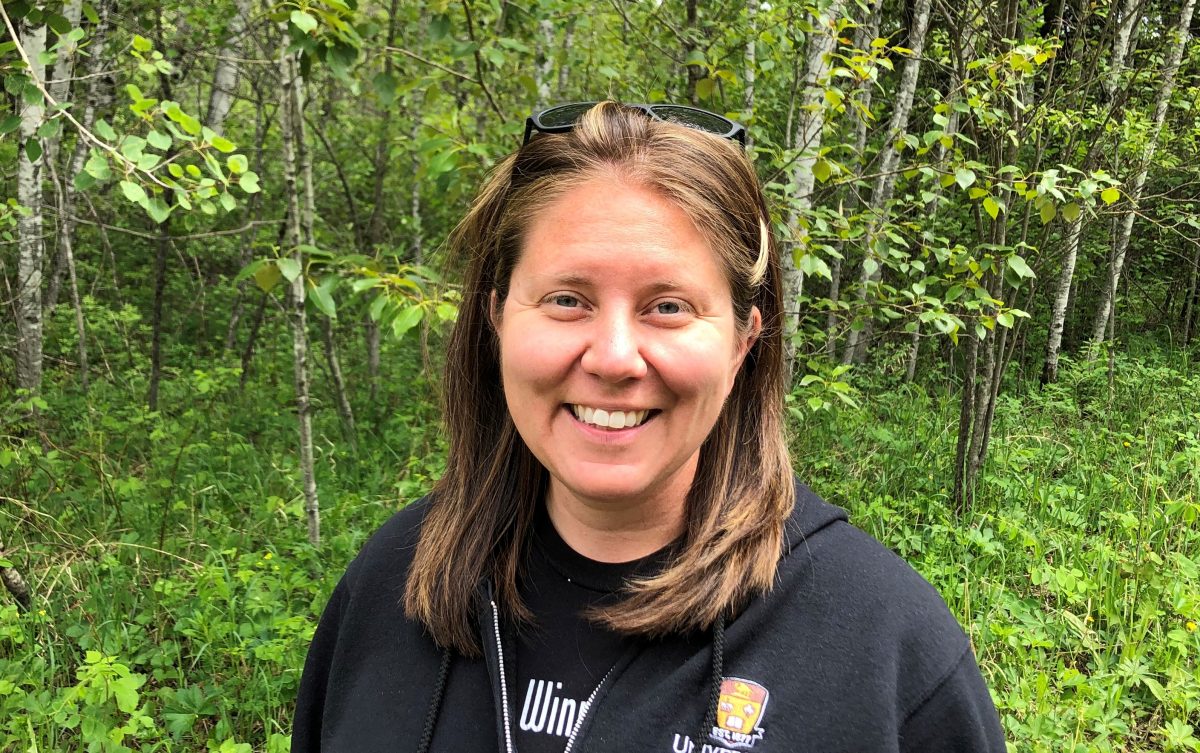
2020 Vanier Scholar, Ashley Hayward
Meet Ashley Hayward, one of five of UM’s 2020 Vanier Canada Graduate Scholarship recipients.
These awards, considered the Canadian equivalent of the United Kingdom’s Rhodes Scholarships, help recruit and keep in Canada top doctoral students from across the country and around the world. Each recipient will receive $150,000 over three years toward their research.
Hayward will be conducting her research in the Faculty of Graduate Studies’ Peace and Conflict Studies program under the co-supervision of Drs. Jessica Senehi (UM) and Jaime Cidro (UWinnipeg). Her award is funded by the Canadian Institutes of Health Research. UM Today caught up with Hayward to chat about how the Vanier Scholarship will support her research titled: Incarcerated mother’s experience with pregnancy and childbirth: A narrative inquiry.
Tell us about your thesis and research topic.
I am a community engaged researcher which means I work almost exclusively in partnership with social service organizations that deliver services to the community. I have largely benefited from the established relationships of my co-supervisor and Canada Research Chair in Health and Culture, Dr. Jaime Cidro. The value of these relationships is the foundation of the work that we do as an Indigenous research team.
For my doctoral research, I am working with a larger project called Pii mo(o) saa yung (translated to ‘She Walks with Me’). This project is a community driven partnership with Aboriginal Health and Wellness Centre of Winnipeg, Inc. and First Nations Health and Social Secretariat of Manitoba along with other collaborators, focused on research and delivery of an urban Indigenous doula service in Winnipeg to improve health outcomes for Indigenous mothers and their babies. These organizations work with Indigenous women and families, so they are aware of the gaps in supporting Indigenous women with culturally-based birth supports during pregnancy and post-partum.
What got you interested in your topic in the first place?
Following the birth of my two daughters, I returned to university as I began to recognize systemic and structural inequities that Indigenous women specifically faced. I knew a university education would provide me the skills and tools I needed to challenge systems and spark change for a more equitable world.
What impact do you hope your research has?
I truly hope my research provides relevant findings for our community partners and can be used to advocate for policy change. Undertaking this work would not be possible without strong relationships, trust, and mutual passion for providing a culturally-based experience for expectant mothers and families.
How has writing the thesis been going (if you’re at that stage of your research)?
I am currently completing coursework which will be finished by December 2020.
How long have you been at UM?
I started studying at UM in 2017 when I entered the joint Peace and Conflict Studies masters program. I felt at home at the Arthur V. Mauro Institute for Peace & Justice, so I decided to pursue a PhD with the encouragement of Drs. Jessica Senehi (co-supervisor) and Adam Muller (Director).
What does it mean to you to receive a Vanier scholarship?
I am truly humbled to receive the Vanier scholarship and am extremely grateful for the mentorship and support I have received throughout my studies at UM. From the very beginning of my educational journey, my parents made sacrifices to ensure I could pursue higher education if I wanted to, and with the encouragement of my husband Joel, I was able to pursue graduate studies. Although this scholarship is framed as an individual recognition, for me it is about honouring all of the people who have made considerable investments of time and energy in me by sharing their networks, skills and advice to help me along this journey.
What do you do with your time outside of your PhD work?
Outside of my studies, I enjoy spending time “unplugged” with my family especially at our property in Bird River. We have an 80 lb. dog named Aria who also keeps us busy with endless requests for attention.
Where do you see yourself in five to 10 years from now?
I hope to continue to be a role model to my two children. Universities are increasingly demonstrating the importance of having Indigenous people in both faculty and executive positions and this may be an option for me. Indigenous organizations are also seeing the value of research and increasingly there are more Indigenous people with PhDs working in research related roles. Whether in an Indigenous organization or in a university, my training and the support from Vanier will help me continue as a community engaged, Métis scholar.
Research at the University of Manitoba is partially supported by funding from the Government of Canada Research Support Fund.






